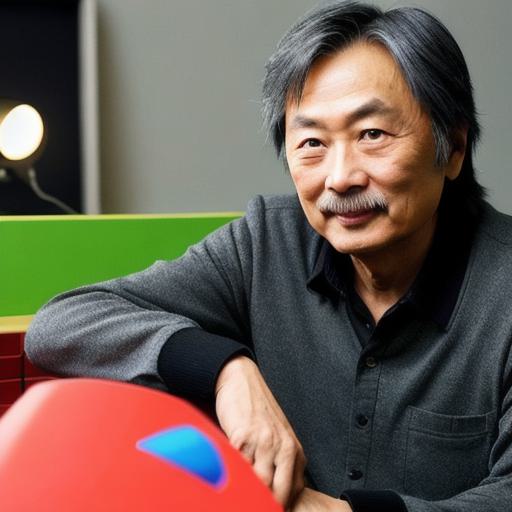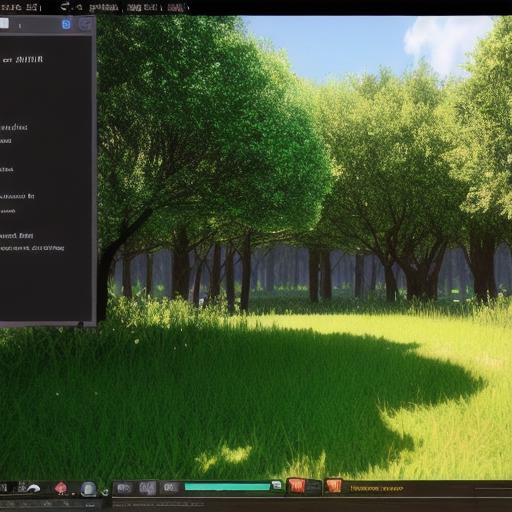In today’s rapidly evolving gaming industry, game developers are constantly looking for ways to stay on top of their craft and create more engaging and immersive experiences for players. One common question that arises is whether or not game developers actually play games themselves. The answer is a resounding yes – many game developers do indeed play games regularly to improve their skills and understanding of the industry.
In this article, we will explore the reasons why game developers play games and examine some of the benefits they gain from doing so. We will also discuss how playing games can help game developers to create more realistic and engaging experiences for players, and examine some of the challenges they face when balancing their own gaming interests with the demands of their job.
Why Do Game Developers Play Games?
There are several reasons why game developers play games, but perhaps the most important one is to stay on top of their craft. By playing games themselves, game developers can gain a deep understanding of what makes a good game and what players want from their gaming experiences. They can also identify areas where they need to improve their own skills and knowledge in order to create more engaging and immersive games for players.
Another reason why game developers play games is to get inspiration for their own work. By playing other games, they can see how other developers have approached various challenges and opportunities, and they can use this information to inform their own creative processes. In addition, playing games can also help game developers to relax and recharge, which is especially important when working in a high-stress industry like gaming.
The Benefits of Playing Games for Game Developers
There are many benefits that game developers gain from regularly playing games, both in terms of their skills and their understanding of the industry as a whole. Some of the most important benefits include:
- Improved Skills: By playing games themselves, game developers can develop their own skills and knowledge in areas such as game design, programming, and art direction. They can also identify areas where they need to improve and use this information to create more engaging and immersive games for players.
- Enhanced Creativity: Playing games can help game developers to stay inspired and creative by exposing them to new ideas and approaches to game design and development. It can also provide them with a fresh perspective on their own work, which can lead to new and innovative solutions to problems they may be facing in their own projects.
- Better Understanding of Player Needs: By playing games themselves, game developers can gain a deep understanding of what players want from their gaming experiences. They can see how other developers have approached various challenges and opportunities, and use this information to inform their own creative processes. This can help them to create more engaging and immersive games for players that better meet their needs and expectations.
- Improved Collaboration: Playing games can also help game developers to work more effectively with other members of their team. By understanding the challenges and opportunities presented by different aspects of game design and development, they can communicate more effectively with other developers, artists, and producers, which can lead to more successful projects in the long run.
The Challenges of Balancing Gaming Interests with Work Demands
While playing games can be incredibly beneficial for game developers, there are also challenges that they face when balancing their own gaming interests with the demands of their job. Some of the most common challenges include:
- Time Management: Game development is a complex and demanding industry that requires a great deal of time and effort to create high-quality games. Game developers may struggle to find the time to play games themselves, especially if they are already working long hours on their own projects.
- Bias: Game developers who play too many games in one genre or with similar mechanics may become biased towards that particular style of game and neglect other areas of game design and development. This can lead to a lack of diversity in their work and limit the creativity they bring to their own projects.
- Over-Reliance: While playing games can be incredibly beneficial for game developers, it is important not to over-rely on them. Game developers who spend too much time playing games may neglect other aspects of their work, such as communication with team members and staying up-to-date with industry trends and developments.
Case Studies: Real-Life Examples of Game Developers Playing Games
There are many examples of game developers who have incorporated gaming into their work to improve their skills and understanding of the industry. Here are a few real-life case studies that illustrate how this can be done:
- John Carmack: The founder of id Software, creators of popular games like Doom and Wolfenstein 3D, is known for being an avid gamer himself. He has said that he believes that playing games is essential to staying current with the latest developments in game design and technology. In addition to playing games himself, Carmack also encourages his team at id Software to play games as a way of improving their skills and understanding of the industry.
- Shigeru Miyamoto: The creator of Super Mario Bros and The Legend of Zelda is another well-known game developer who is known for being an avid gamer himself. In addition to playing games himself, Miyamoto also incorporates elements of games that he has played into his own work. For example, he has said that the idea for Super Mario Bros came from his experience playing Pong.
- Markus Persson: The creator of Minecraft is another game developer who is known for being an avid gamer himself. In addition to playing games himself, Persson also uses gaming as a way of testing and refining new ideas for Minecraft. He has said that he often plays other games as a way of identifying areas where Minecraft could be improved and incorporates these ideas into his own work.
FAQs: Frequently Asked Questions About Game Developers Playing Games

Do game developers play games regularly to improve their skills and understanding of the industry?
Yes, many game developers do indeed play games regularly to improve their skills and understanding of the industry. This can help them to stay on top of the latest developments in game design and technology, get inspiration for their own work, and better understand the needs and preferences of their players.
What are some of the benefits that game developers gain from playing games?
There are many benefits that game developers gain from regularly playing games, including improved skills, enhanced creativity, better understanding of player needs, and improved collaboration with other members of their team. In addition, playing games can also help game developers to relax and recharge, which is especially important in a high-stress industry like gaming.
What are some of the challenges that game developers face when balancing their own gaming interests with work demands?
Some of the most common challenges that game developers face include time management, bias, and over-reliance on games. Game developers may struggle to find the time to play games themselves, especially if they are already working long hours on their own projects. They may also become biased towards a particular style of game or neglect other areas of game design and development. In addition, spending too much time playing games can lead to a lack of diversity in their work and limit the creativity they bring to their own projects.
Are there any real-life examples of game developers who have incorporated gaming into their work to improve their skills and understanding of the industry?

Yes, there are many real-life examples of game developers who have incorporated gaming into their work to improve their skills and understanding of the industry. For example, John Carmack, the founder of id Software, believes that playing games is essential to staying current with the latest developments in game design and technology. Shigeru Miyamoto, the creator of Super Mario Bros and The Legend of Zelda, also incorporates elements of games that he has played into his own work. Finally, Markus Persson, the creator of Minecraft, uses gaming as a way of testing and refining new ideas for Minecraft.



